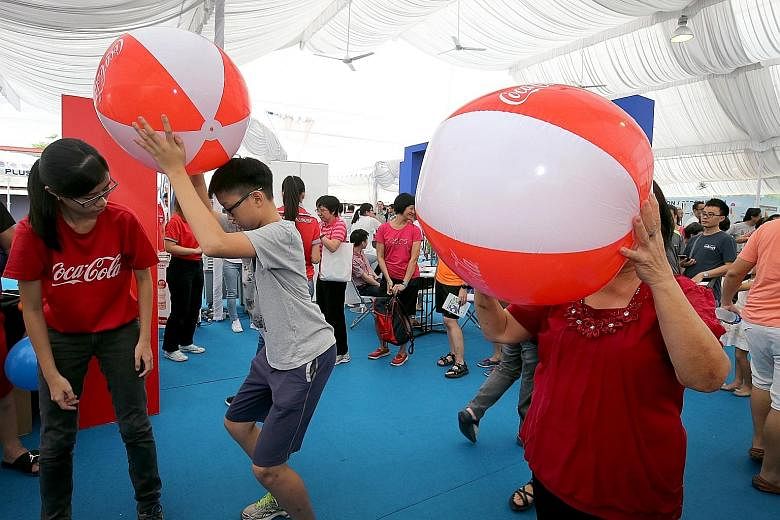Monetary rewards can be the nudge to get people moving, judging by the good response to a scheme to get people to take more steps.
But what is more encouraging to the Health Promotion Board (HPB), which organises the National Steps Challenge, is that many people kept going even after winning all the prizes available to them.
Those who take part in the challenge get a pedometer to monitor how many steps they take in a day. They can redeem rewards such as shopping and grocery vouchers if they hit certain targets. About 156,000 people took part in its first season, which ran from November 2015 to May last year.
Based on a study of 2,600 participants from the first season, more than 90 per cent of those who had won all the prizes they could still clocked an average of 8,800 steps a day for at least two months. While their levels of activity dipped, this is not far from the scheme's target of 10,000 steps a day, which is more than the recommended 150 minutes of physical activity a day.
Dr Chew Ling, director of HPB's insights, innovation and planning division, said: "We found it a myth among participants that they walked 10,000 steps only because of the NTUC vouchers." The "positive reinforcement" people got from the rewards over three to six months probably helped them to make the exercise a daily habit, she said.
HPB plans to start the third season of the challenge in October, and tougher challenges are on the cards, said its chief executive Zee Yoong Kang. There could be a new component called Active Steps, defined as more than 100 steps a minute, as well as heart-rate monitors to "incentivise physical activity which raises the heart rate", he said.
"Over time, the National Steps Challenge will evolve to have a broader and broader definition of what physical activity is," he said.
Another finding from the first season's data was that participants moved less during their free time - even though past surveys found that the most commonly cited reason for not exercising was a lack of time.
Participants clocked in an average of around 11,000 steps every day except on Sundays, where the number dropped by about 500.
This is based on 45,000 participants, who wore the pedometer and synced their steps with the Healthy 365 app from March to April last year.
Not surprised by the finding, sport and performance psychologist Edgar Tham, who owns SportPsych Consulting, said: "Often, we find executives saying that they lack energy after a long work week, so that could explain why they don't exercise on the weekends, because that's the time they take a physical break."
But for those who run regularly, like Mr Kapil Chowla, 49, the challenge is added motivation.
The programme encouraged him to "walk whenever possible", such as when going to the supermarket.
"I keep long hours at work, so (walking) is one way of relieving stress, and the tracker lets me know if I'm doing enough," said the partner at an engineering and IT consultancy firm.


